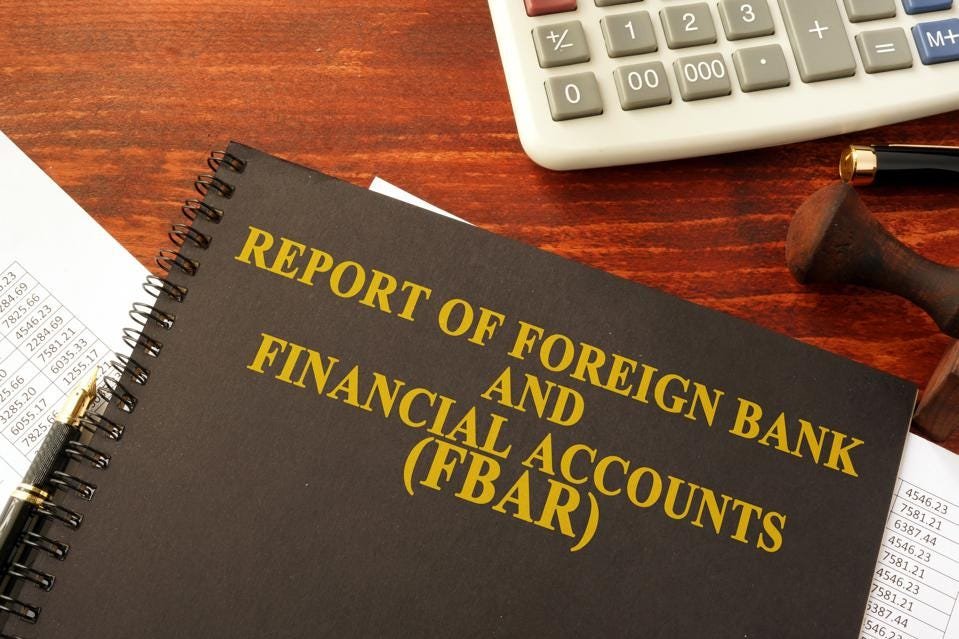Publications

IRS Releases Proposed Regulations on Reporting & Income Taxation of Digital Assets
In August of 2023, the IRS proposed regulations aimed to align tax reporting on digital assets with tax reporting on other financial assets. They would provide much-needed guidance and clarity on the taxation of digital asset transactions, ensuring consistent reporting and treatment across different types of assets such as crypto. We can help you navigate your taxes and estate planning with Cryptocurrency, NFTs, and other digital assets. There are additional considerations and expertise that Matthew Erskine keeps up to date with and can help you plan for the future with your digital assets.

Planning For Estates That Contain Firearms
Estate planning involving firearms requires careful consideration and adherence to legal requirements. By understanding the legal issues, choosing the right executor or trustee, considering a gun trust, keeping accurate records, and exploring buyback programs, you can ensure that the transfer of firearms in your estate plan is done legally and safely. Consulting with an attorney experienced in firearms and estate planning can provide valuable guidance throughout the process.

What to do When You win the Lottery
Receiving a windfall is both exciting and overwhelming; something estate planners should anticipate while creating an estate plan for their client. Even smaller windfalls can be a life changing event. Here are some recommended actions to consider taking to manage your newfound wealth responsibly.

Aretha Franklin’s Estate: Why Copyrights Require Estate Planning
The Aretha Franklin estate is a high-profile, and expensive, lesson in how not to manage copyrights in an estate. These copyrights should be considered assets and an integral part of the client’s estate. Such planning includes the management and distribution of copyright assets after the copyright owner passes away. Proper estate planning can ensure the protection and transfer of copyright ownership, as well as provide for the financial well-being of heirs and beneficiaries.

FDIC Changes Insurance Coverage Of Trust Bank Accounts
The FDIC issued new regulations, effective April 1, 2024, on how the insured amounts are calculated. These changes make it simpler to calculate what is, and is not, insured but will still require some adjustment in how much is held in trusts.
The FID treats revocable and irrevocable trusts differently. Revocable trusts, which include informal trust accounts such as Pay on Death (POD) or As Trustee For (ATF) accounts are insured up to $250,000 per unique beneficiary up to a maximum of five beneficiaries, provided that 1) the bank account title states that the account is for a trust, 2) each beneficiary is named in the correct place, and 3) each beneficiary is a living person, charity or non-profit organization. So, if a revocable trust account has only one beneficiary, the insurance limit is $250,000, if the revocable trust has five or more beneficiaries, the insurance limit is $1,250,000 total.

The Corporate Transparency Act Part Two: The impact on family firms doing business in the US
The CTA requires existing and future companies, either formed or registered to do business in the US, to electronically file a report with the Financial Crimes Enforcement Network (FinCEN) of the US Treasury Department. These reports will file into an as-yet-nonexistent database of individuals who are direct or indirect beneficial owners of the reporting company, as well as individuals reporting the information for the reporting company. Companies must provide beneficial ownership information.

The Corporate Transparency Act: Changing the Way Families Doing Business in the United States Think About Confidentiality and Data
On January 1, 2024 – and family businesses that are either US entities or are registered to do business in the US need to make preparations for reporting under the Corporate Transparency Act or face fines and even potential jail time. For many, this act has flown under the radar, and family enterprise advisors should begin helping their clients understand the implications now

Avoiding (or at Least Deferring) Taxes on the Sale or Gifting of Art
If your client is an artist, collector, or inheritor of art, when it comes time to plan to sell or gift the art, sale at auction could result in half of the hammer price going to taxes and fees. Consider using the charitable status of organizations like the Center for Art Law or Charitable Trusts to help defer or avoid the tax.

Highlights Of the Art Market in 2022
Artprice.com has released its report, “The Art Market in 2022”. At 72 pages, it is a comprehensive look at the global art market, which is especially interesting to professional advisors to collectors of Art. International fine art auction turnover rose slightly in 2022, more than one million artworks appeared at auctions in 2022, of which almost two-thirds (65%) found buyers.

What Are the Duties of A Trustee?
Trust Agreement is the written document directing the management of the property, the payments of income and principal, and the scope and duration of the Trust. What are the Duties of the Trustee? The duties of the Trustee arise from the Trustee’s obligation to carry out the Grantor's intentions in creating and funding the Trust. There are five general duties of the Trustee – to be prudent, to carry out the terms of the Trust, to be loyal to the Trust, to give the Trust their personal attention, and to account to the beneficiaries of the Trust.
Don’t Blame Venture Capitalists For SVB's Collapse
Better decision-making processes, not railing against venture capitalists, are some of the lessons that should come out of the Silicon Valley Bank's collapse. From an estate planning perspective, the issue is not so much what the venture capitalists did, as much as how they came to the decision they did to advise their portfolio companies to withdraw funds from the bank. This is most likely because most venture capitalists who are controlling the funds are, at their core, entrepreneurs and use an action-based decision-making process.

The Biggest Issue You Have Never Heard of - Complying with the Corporate Transparency Act
Are you an owner of a business, of real estate, or of other property organized as a corporation, limited liability company, limited partnership or other entity created by filing with a Secretary of State office? If yes, then you and your company will need to file information with the Treasury Department on yourself, your company, and every beneficial owner of an interest in your company starting January 1, 2024. If you do not, you face a fine up to $10,000, up to 2 years in jail, or both for each failure to report. Get started now. how to comply with the strict requirements of the new Corporate Transparency Act. (CTA). Determine whether the CTA applies to you and your company and if so, what you will need to report

What Are Durable Powers of Attorney, Living Wills, Health Care Proxies, Declarations of Homesteads and Beneficiary Designation Forms?
Documents used in estate planning are Durable Powers of Attorney, Healthcare Proxies, Declarations of Homestead and Beneficiary Designation Forms, are in many ways ancillary to the Will and the Trust. It is important to have all of these documents up to date and properly coordinated with your estate plan.

Strategic Estate Planning for UHNW Individuals
The economic, environmental, social, and political situations are and will remain, uncertain. The federal estate tax reverts back to $5 million after 2025. States and the federal government are increasing income tax rates, and inflation erodes accumulated wealth. If you are an advisor to UHNW individuals, you should ask, will their estate plans work in the face of these uncertainties?

Art and Art Funds as Alternative Investments

Tax Planning for Stock Options
Stock options, that is the contractual right to buy the stock of an employer by an employee at a discount price, remains a popular way for companies to compensate employees without incurring an immediate financial cost, and for employees to receive some participation in the equity of the company without incurring immediate income taxes. If you have stock options, whether Qualified or Non-Quantified, is important to consider not only when you might exercise the options during your lifetime, but also how you might hold the options after your death.

Advising Investors And Collectors Of Gold
Investing in gold: Investors buy gold as a hedge against the rise of inflation, the fall of the stock market, or the change in the strength of the dollar. The two common ways of investing in gold is to hold gold indirectly, either through a fund that holds gold directly, for example, the Gold ETF (ticker symbol GLD); or hold stock in companies that mine and refine gold, such as Barrick Gold (ticker symbol ABX), or directly by buying bullion, either in the form of coins or bars

Why Having A Chief Of Staff For A Family Business Helps Avoid Disasters
The whole blame nor the whole praise for the failure or success of family businesses lies with the leadership or the collective family business organization. Leadership must understand that there are flaws within the family business organization; and, a leader is willing to undertake the institutional risks to fix those flaws.
Many times it requires more than just an Alpha leader but also a Beta leader, or a chief of staff from outside the organization, such as lawyer , accountant or other professional who is able to execute on the changes as they are needed

Yvon Chouinard And The Patagonia Purpose Trust— What Is It And Will It Work?
The Patagonia Perpetual Trust and the non-profit Holdfast Collective is, in my opinion, and elegant strategy to achieve Yvon Chouinard’s, and his family’s, objectives. Though the Purpose trust they will be able to ensure the succession of the management of the company and, hopefully, its profitable existence for decades to come as well as a high level of satisfaction for all of the stakeholders in the company. Through the Collective, those public policy and charitable purposes of Chouinard will benefit from the profits of the company. The only one who loses will be the government, since if the entire $3 billion value of the company was taxable Chouinard’s estate would owe $1.6 billion, or more if after 2025, in federal estate taxes.

Exiting The US: Procedure And Taxes
A number of US citizens talk of leaving the country, few understand how complicated and lengthy the process can be. Covered expatriates
The law covers people who leave and are either: 1) US citizens or, 2) long-term permanent residents who have held green cards for eight of the last fifteen years who give up their green card. Both are subject to an immediate "Exit Tax" on unrealized gains on their assets, both in the US and worldwide, including grantor trusts and future gifts to US citizens and residents.
